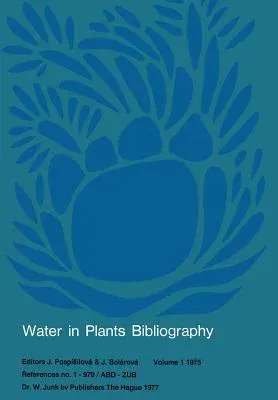Water-In-Plants Bibliography: References No. 1-979/Abd -- Zub (Softcover Reprint of the Original 1st 1977)Paperback - Softcover Reprint of the Original 1st 1977, 30 September 1977

Qty
1
Turbo
Ships in 2 - 3 days
In Stock
Free Delivery
Cash on Delivery
15 Days
Free Returns
Secure Checkout
Part of Series
Water in Plants Bibliography
Print Length
96 pages
Language
English
Publisher
Springer
Date Published
30 Sep 1977
ISBN-10
9061939011
ISBN-13
9789061939016
Description
Product Details
Book Edition:
Softcover Reprint of the Original 1st 1977
Book Format:
Paperback
Country of Origin:
US
Date Published:
30 September 1977
Dimensions:
24.41 x
16.99 x
0.53 cm
ISBN-10:
9061939011
ISBN-13:
9789061939016
Language:
English
Location:
Dordrecht
Pages:
96
Publisher:
Series:
Weight:
172.36 gm

